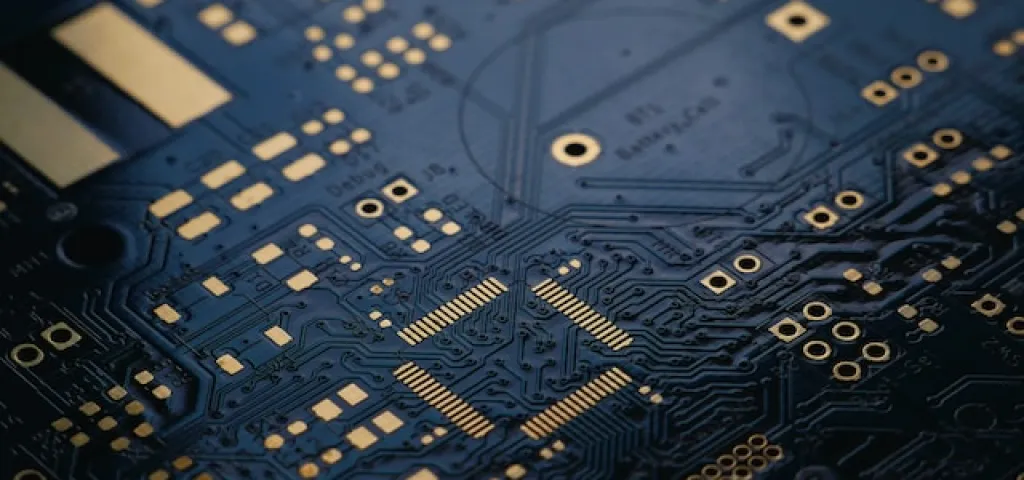
History - Location of the Department
The Department of Electrical and Computer Engineering of the University of the Peloponnese is part of the School of Engineering located in Patras, and was founded in May 2019 through the article 46 of Law No 4610/2019 (Government Gazette 70/Α’/07-05-2019). Location: Patras
Undergraduate and Postgraduate Studies
The Undergraduate Curriculum lasts fi ve years (300 ECTS) and according to the decision (78075/Ζ1/30-06-2021, Government Gazette 2987/issue Β’/08-07-2021) of the Deputy Minister of Education, its successful completion leads to the acquisition of an Integrated Master in the Department’s specialisation, on the Level 7 of the National and European Qualifi cations Network.
The Undergraduate Curriculum off ers a basic education with duration of six (6) semesters and four specialisations (directions of studies) with a duration of four (4) semesters, which are as follows:
▶ Energy Systems
▶ Signals, Telecommunications and Networks
▶ Electronics, Computers and Systems
▶ Informatics
The fundamental education and the directions of studies aim to high-level theoretical and laboratory education of students in the following fi elds of study of Electrical and Computer Engineering, and especially in:
▶ Production installations; networks for transmission, conversion, protection and distribution of electricity, including machinery, apparatus and components, as well as installations relating to electricity, electric motors, power electronics, lighting and electricity storage and their applications; power stations with conventional fuels or renewable energy sources; methods of fi nancial management of electricity and operation of regulated or non-regulated electricity markets.
▶ Electromagnetic fi elds and their applications; antennas and radiowaves; broadcasting systems; microwaves; microwave and optoelectronic devices and circuits; analogue and digital signals and systems; digital signal processing; analogue and digital telecommunications systems; fixed and mobile communications networks; satellite communications; computer networks; optical networks; broadband networks; sensor networks; internet and internet of things (IoT) technologies; communication systems management.
▶ Analogue and digital hardware systems; circuits and devices; integrated circuits (programmable and non-programmable); computer systems architecture; electronic circuits; microelectronic and nanoelectronic components, elements and devices; analogue and digital systems; sensors; embedded, integrated systems; industrial automation; intelligent systems; automatic control; cyberphysical systems and internet of things (IoT).
▶ Computer programming; operating systems; application and system soſt ware; soſt ware technology; data and knowledge management and analysis; artifi cial intelligence; virtual and augmented reality systems; human-machine interaction; web applications; cloud computing; intelligent systems and their applications; parallel and distributed data processing, and data and science analytics; visualisation and graphics; information systems management; management and decision systems; soſt ware security; data security.
The Department off ers the Postgraduate Curriculum “Technologies and Services of Intelligent Information and Communication Systems”. The purpose of the MSc is to develop technologies, models and methods for the effi cient management and processing of large volumes of data, the development of digital skills, the export of knowledge and the assistance of decision-making in critical areas, and especially in modern cyber systems, STEM education and companies/organisations. Emphasis is also placed on developing cross-cutting skills related to entrepreneurship and open innovation. Postgraduate Studies Website: http://smart-ict.ece.uop.gr/
Lastly, the Department off ers to those interested third-cycle studies for the preparation of a Doctoral Thesis, in areas that fall within the research interests and/or scientific fields that are treated by the Department either exclusively or more broadly according to the concept of interdisciplinarity that governs contemporary research activity. The cycle of doctoral studies is completed with the preparation of an original dissertation and the award of a Doctoral Degree.
The Department is newly founded and will apply for the accreditation of its Curriculum in the academic year 2021-22.
Carrer Propsects
1. Recognition of professional rights (if any), professional career in public and private institutions, and opportunities of enrolling in Postgraduate Curricula.
2. Graduates of the Department can enrol in a Postgraduate Curriculum or pursue a professional career in the following scientific areas:
3. Electricity Systems, with emphasis on the study and analysis of electrical networks, the design and study of low, medium and high voltage electrical installations as well as the production of electricity
4. Electromechanical Energy Conversion, with emphasis on the study of the operation of electric motors as well as the design and implementation of electronic power devices.
5. Computer and Communication Networks, with emphasis on the design, implementation and support of fi xed and wireless 5G networks.
6. Hardware and Computer Systems, with emphasis on the design, development and maintenance of computer systems, peripherals, embedded systems, complex sensor systems as well as the design and programming of integrated circuits.
7. Computer Science, with emphasis on theoretical and algorithmic principles of computation, programming and information management.
8. Soſt ware Technologies, with emphasis on analysis, design and implementation of soſt ware systems.
9. Information Systems, with emphasis on requirements analysis, as well as the design and implementation of systems, with the aim of supporting information management and management processes at all levels of an organisation or a business.
Research
In the Department of Electrical and Computer Engineering there are the following established research laboratories:
1. Data and Media Lab (DM Lab)
2. Interdisciplinary Semantic Interconnected Symbiotic Education Environments Lab – (ΙnterSy Lab)
3. Network Technologies and Digital Transformation Lab (NeTDiT Lab)
4. eBusiness and User Experience Lab (eBusiness Lab)
5. Electronic Circuits, Systems and Applications Lab (ECSA Lab)
6. Distributed Intelligent Systems and Data Lab (DISyD Lab)
7. Microelectronics and Communication Lab (MicroCom Lab)
8. Power Systems Lab (PES Lab)
9. Embedded System Design and Applications Lab (ESDA Lab)”
Here you can fi nd a brief presentation of all research laboratories [ pdf | pptx ]
Indicative catalogue of research projects: https://www.ece.uop.gr/erevnitika-programmata/
The Department of Electrical and Computer Engineering applies the postgraduate research framework of the University of the Peloponnese, as defined aſter the Senate’s decision 18/14.11/2017.
Access
38.218829349649, 21.747356017159
Department of Electrical and Computer Engineering

